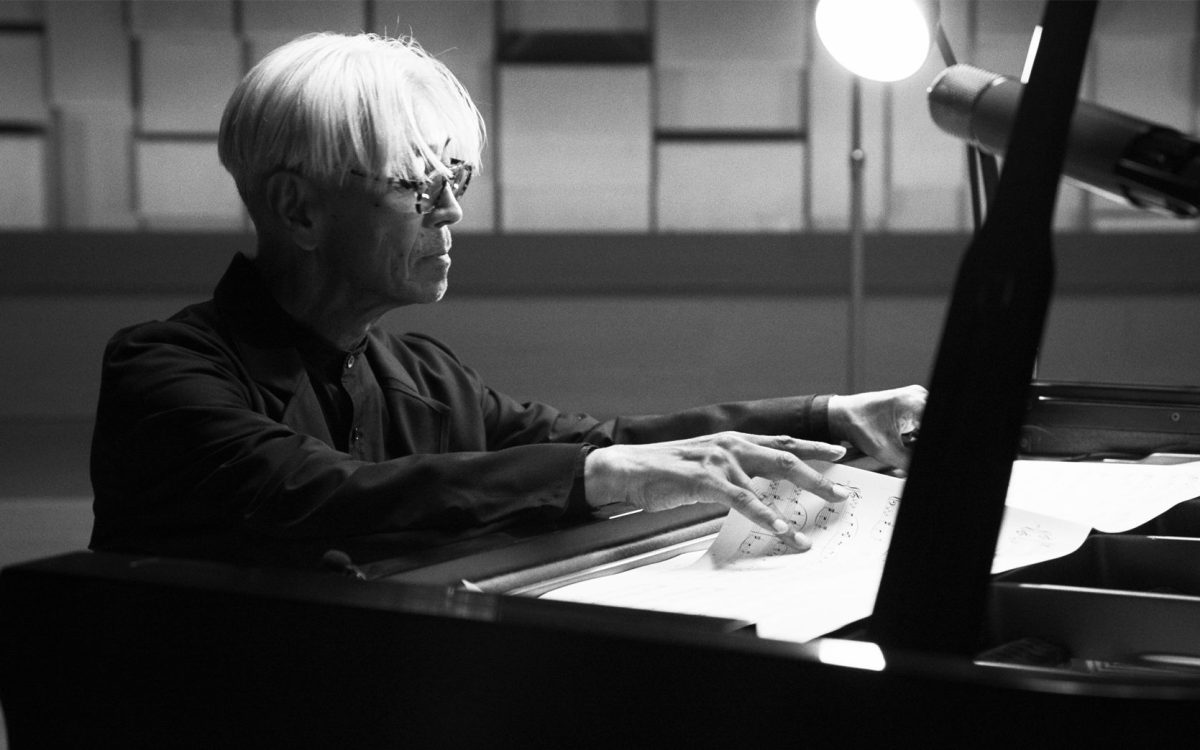Ryuichi Sakamoto was a world-renowned composer and pianist who remained active as a creative and performer right up until his health rapidly deteriorated due to his long-term battle with cancer in early 2023 and subsequent death on 28 March that year.
He was originally due to tour KAGAMI, his latest collaboration with mixed reality studio, Tin Drum, to the Sydney Opera House in 2024. Instead, a year after his death, Australian audiences are left with the documentary, Opus.
The film features Sakamoto playing 20 of his iconic pieces, alone with a Yamaha, surrounded by microphones that capture not only the piano, but every sound in the room. It was directed by Sakamoto’s son Neo Sora and produced by Sakamoto’s wife and manager, Norika Sora – this intimate knowing seamlessly translates to viewers as Sakamoto reveals his craft, philosophy, aspiration and, ultimately, legacy at a time of heart-aching vulnerability.
This is a work that is crafted to be watched as much as it is to be listened to. The documentary’s contrasting monochrome makes for a striking visual experience, where multiple camera angles create layers of subtle narrative as Sakamoto channels everything he has into what he already knows will be his final performance.
At the screening, every rippling note resonated throughout the Melbourne Recital Centre’s Elizabeth Murdoch Hall, adding to this enveloping experience. This can sometimes backfire with a live audience, with the slightest shuffle or cough bouncing off the acoustic space.
Judging by the reactions of some audience members surrounding this writer, Sakamoto’s composition may appear lacklustre when compared to the grandeur that classical music enthusiasts are used to hearing, but for those for whom his music resonates, Opus offers a deep spiritual connection that goes beyond the artist’s international success.
Every note remains thoughtful and sincere, despite the fact that Sakamoto played the compositions countless times throughout his career. On screen his generosity is palpable as he gives himself to his art – his whole body an instrument.
The satisfied smile when things go well, the furrow of the brows when something is even slightly off, Sakamoto appears to be unravelling before our eyes. The only time he speaks is when, dissatisfied with a section, he asks for a break and exclaims how much of a challenge the project is, before diving straight back in.
Read: Theatre review: Teeth and Tonic, La Mama Courthouse
The film leaves viewers with bittersweet tears, and an ending that the artist perhaps already predicted at the time of shooting in late 2022.
But to see Opus is to see the maestro at work again, with all his vigour and perfectionism – it’s Sakamoto, breathing.
Ryuichi Sakamoto | Opus was presented by Melbourne Recital Centre & Hi Gloss Entertainment from 22-23 March.





